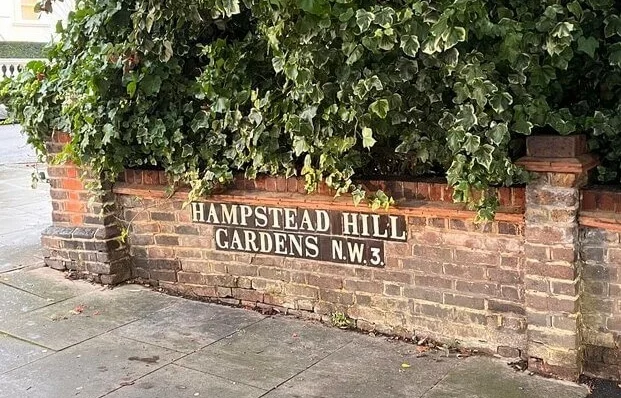Financial Remedy Orders Explained

Contact
Table of Contents
It is common for disagreements to arise over the finances during a divorce, even if you are on good terms with your partner. If you are finding it hard to reach an agreement, you may need to resolve matters through a Financial Remedy Order.
What is a Financial Remedy Order?
A Financial Remedy Order is where the Court decides the best way to divide finances, property and other assets after a separation. This includes any money held in bank accounts, investments and pension funds, business assets and arrangements for the family home.
- Related reading: Selling a House in Divorce
Why might I need a Financial Remedy Order?
Financial Remedy Orders can be used when the parties cannot agree on a financial settlement between themselves. The judge must ensure the outcome is fair to both of you, so having the Court decide matters is a good way to maintain a healthy relationship between you while protecting your financial future.
How do I get a financial remedy order?
Obtaining a financial remedy order generally involves the following steps:
1: Mediation Information and Assessment Meeting (MIAM)
This is the first step in the process. You will need to attend a MIAM to understand if mediation can help you reach an amicable agreement, before you can apply for a court order.
2: Application to the court
If mediation is not successful or suitable, you can apply to the Court for a Financial Remedy Order. Your solicitor will submit the relevant application on your behalf.
3: Prepare a financial statement
Both parties are required to provide a detailed account of their financial circumstances using Form E. This detailed form includes information about your income, property, pensions and other assets.
4: First Appointment
The First Appointment is an initial court hearing where the judge reviews the financial disclosures and sets a timetable for the next stages. For example, the judge may decide that further reports or disclosures are needed. It cannot be arranged until 12 weeks have passed since the date of the application, giving you both time to make and review the financial disclosures.
5: Financial Dispute Resolution (FDR) Appointment
An FDR is an opportunity for you and your ex to discuss the issues that are unresolved between you and come up with a ‘deal.’ A judge will work with you to guide you towards a sensible outcome, having regard to the decisions a Court might make if the matter were to proceed to a Final Hearing. While every case is different, the FDR judge will encourage you to focus on the major issues such as:
- Whether a clean break is appropriate
- Whether spousal maintenance should be paid
- Where the children will live
- Whether the family home should be sold
- Whether there should be a pension sharing order
An FDR is more informal and less adversarial than a court hearing, making it more likely a settlement will be reached.
6: Final Hearing
If you are unable to reach an agreement via FDR, their case will proceed to a Final Hearing where a Court will make a decision on the financial issues. This is the last stage of proceedings and you may be required to give evidence under oath or be cross-examined by the other party’s lawyer.
The Final Hearing is legally binding. At the end of it, a judge will sign the Financial Remedy Order detailing how the finances and assets are to be divided.
What does the court take into account when it makes a decision about a financial order?
- The current income, the ability to earn in the future, any property and other financial resources of each party. The court uses this information to assess whether each party can continue to maintain a reasonable standard of living following the divorce.
- The financial needs and obligations of each party, including their living expenses, housing needs, and any liabilities.
- The standard of living enjoyed by the family prior to the breakdown of the marriage.
- The welfare of children, including their financial, educational, and emotional needs.
- The age of each party and the duration of the marriage. Longer marriages might lead to more evenly split arrangements, reflecting the contributions made by each spouse during the marriage.
- The physical and mental health of both parties as this can affect their ability to earn income in the future.
- Contributions made by each party. The court will assess contributions made by both the breadwinner and the home-maker including time taken out of the workplace and non-financial contributions, such as one partner staying at home to care for children.
Are international assets included in a Financial Remedy Order?
In an international divorce, the court considers all assets, including those held abroad. Enforcing the order on foreign assets may require additional legal steps, depending on the jurisdiction of the country where the assets are held. Some countries have reciprocal agreements with the UK, which can make enforcement easier, while others may need separate legal proceedings.
How long does it take to get a Financial Remedy Order?
Because it requires several hearings, it can take several months, or even up to a year, for a Financial Remedy Order to be granted. However, there are plenty of opportunities for you to reach a mutual agreement before the Final Hearing, so the length depends on how successful you are in your negotiations.
Is a Financial Remedy Order the same as a Consent Order?
Financial Remedy Orders and Consent Orders are similar in the sense that they both create a legally binding agreement about how finances are to be divided when you split.
However, a Consent Order is when both parties agree on the terms of their settlement out of court. A judge will approve the order but will not make it.
A Financial Remedy Order involves the Court making decisions for you when you and your ex-partner are unable to agree.
Can you set aside a financial remedy order?
There are three main grounds for setting aside a financial remedy order:
- Fraud or fraudulent non-disclosure
“Fraud unravels all” (Hale LJ, Sharland v Sharland [2015] UKSC 60). If it can be demonstrated that there was fraudulent non-disclosure during proceedings, then generally the court will set the order aside.
However, the exception is if the party accused of fraud can prove that the fraud would not have influenced a reasonable person to agree to the order; and that the court would not have made a significantly different order had it known at the time the order was made, what it knows now.
- Inadvertent or negligent non-disclosure of facts
If the court would have made a substantially different order, had it been aware of the non-disclosure, it will set aside the order.
In Livesey (formerly Jenkins) v Jenkins [1985] 1 AC 424, the wife did not disclose her engagement and subsequent remarriage when she entered into a consent order. This fact undermined the whole case.
The negligent non-disclosure must be ‘material’ to set aside the financial order. What is ‘material’ varies on a case-by-case basis. In subsequent cases, the court has provided some guidance on what ‘material’ is. In the case of Gohil v Gohil [2015] UKSC 61, the court stated that where a party’s non-disclosure is inadvertent, there is no presumption that it was material. The onus is on the other party to show that proper disclosure would have led to a different order on the balance of probabilities. However, where a party’s non-disclosure is intentional, it is deemed to be material; it is presumed that proper disclosure would have led to a different order, unless that party can show, on the balance of probabilities, that it would not have done so (the case of Sharland v Sharland [2015] UKSC 60).
- Mistake
A mistake is where the court, without fault of the parties, does not have the facts when the order is made. The applicant must show that a substantially different order would have been made if the facts were known.
The applicant must show that, at the time of making the original order:
- It was not their fault that the court did not have the facts and
- They could not have reasonably established the facts.
The application to the court must be made reasonably promptly and should not prejudice third parties who have, in good faith, acquired any property interests due to the original order’s subject matter.
Because of the caveats, the court is generally reluctant to set aside an order on the grounds of a mistake, although that does not mean it is impossible to do so.
How can Osbornes Law help?
It is important to explore all possible alternatives before applying for a Financial Remedy Order. Court proceedings can be costly and time-consuming and are best avoided where possible. That’s why our financial settlement lawyers will help you negotiate a Consent Order first and only use a Financial Remedy Order if absolutely necessary.
When it’s not possible to avoid court proceedings, we’ll guide you carefully through the court process, providing you with expert representation at all hearings. We have particular expertise in managing high net worth divorces and international divorces where assets are located overseas. For advice and guidance on how to apply for a Financial Remedy Order, contact Osbornes Law today. Call 020 7485 8811 or fill in the contact form below.
Share this article
Lisa Pepper – one of the best mediators around, whose very reasonable rates don’t reflect her excellent client base
Lisa Pepper is a great go-to solicitor for anyone wanting quick and appropriate advice
Lisa Pepper at Osbornes is hugely approachable. She is calm, clients always praise her. Underneath her calm and approachable exterior is an excellent legal brain
I am confident that Lisa will do her utmost to try and settle matters so that both parties walk away feeling satisfied that they have managed to reach a fair outcome with the assistance of a professional mediator.
Lisa Pepper is robust, competent and knowledgeable and is always keen to try and help parties settle without intervention of the court.
Lisa Pepper is an outstanding mediator. She gets results in very difficult cases. She works extremely hard to get a good outcome for clients who mediate with her
Lisa Pepper- she has a great combination of skills. She is empathetic, approachable and calm, and has good legal judgment. She inspires confidence and trust
Lisa Pepper is particularly recognised for her role as a mediator in complex cross-border disputes. Her practice also includes handling prenuptial agreements and issues arising from divorces. She is additionally skilled in Schedule 1 and other child arrangement matters.
"Lisa Pepper is good at making herself available to clients and has a real focus on finding pragmatic solutions."
"Lisa Pepper is a complete all rounder. Her mediation skills are second to none. She is kind and compassionate and knows the law inside out!."
"Lisa Pepper is ‘compassionate, supportive and committed to hear clients, with a very warm manner."
"Lisa Pepper is fantastic. She goes the extra mile for her clients and is a superb mediator."
"Osbornes has a hugely experienced mediation team with Andrew Watson, Bridget Thompson and Lisa Pepper who are able to offer financial and children mediation for a range of cases including those that are highly complex involving challenging clients."
"Lisa Pepper is fantastic with people and generates calm in her meetings to help clients give of their best."
I can’t think of anyone who would handle a mediation better than Lisa.
Lisa Pepper is extremely hard-working and adored by her clients. She is a very empathetic and approachable lawyer.
"Lisa Pepper was recommended to me as non-nonsense and able to help me with a difficult and confrontational divorce. She more than lived up to that – she was practical, collected and always available with a clear opinion and suggestions of how to move forwards. She also was open and helpful about costs and how to mitigate them"
"Lisa Pepper is an outstanding mediator. She is very skilled and has an empathetic and professional approach which is comforting for clients. She never imposes her own view but is even handed and provides helpful guidance to clients so that they can make empowered decisions"
"Lisa Pepper has built up a very impressive mediation practice. She is very engaging and easy to relate to. She embodies mediation in the sense that she approaches her case in a very non-judgmental fashion and can quickly gain the confidence of those with whom she is mediating"
"Lisa Pepper is a brilliant mediator who produces results. She is effective at resolving matters without the need for the parties to engage in expensive and protracted litigation"
"Lisa Pepper is a fantastic mediator. She is fair, robust when she needs to be, and finds a way of facilitating agreements in the hardest of cases. Her guidance is spot on. She has an approachable and constructive mediation style"
"She has impressed me as someone who fights my corner but also understands the importance of resolving issues without unnecessary escalation. She is calm and reassuring."
"Her mediation practice is exceptional; she is also a great solicitor and has a breadth of skill which is really useful."
Lisa Pepper is extremely approachable and this shines through in the outcomes she achieves from mediation. She makes clients feel at ease, which enables them to feel empowered to resolve matters amicably and find a creative outcome which many mediators may have overlooked.
Lisa Pepper is building a very strong mediation practice at very competitive rates and is able to build a rapport quickly with almost anyone.
Lisa Pepper loves her work and has a very sensible head on her. That means her practice is thriving and rightly so.
Lisa Pepper is very thorough in her preparation and has super personal skills to put parties in mediation at ease
Lisa Pepper – good litigator, very friendly and approachable but tough, “straight bat” with the opposition. Can steer a client deftly to settle when he should.
Lisa Pepper is particularly recognised for her role as a mediator in complex cross-border disputes. Her practice also includes handling prenuptial agreements and issues arising from the dissolution of civil partnerships.
"Lisa Pepper is "caring and considerate of the issues behind a matter, and will speak directly if she feels clients need that advice."
"The very personable and client-focused Lisa Pepper."
"Lisa Pepper somehow manages to get parties to settle on matters where there isn’t much hope to start out with."
"Lisa can handle the large and complicated cases but takes equal care with the smaller cases. She is a highly skilled mediator who is a consummate professional."
Lisa Pepper is a skilled collaborative lawyer. Her instinct is always to resolve matters without compromising her clients’ interests.
Lisa Pepper is always looking for a solution and has a very sympathetic approach to clients. She is highly regarded for her collaborative law practice.
Lisa Pepper deals with separation proceedings and leave to remove cases. Sources describe her as "a great person to work with: constructive, helpful and always infectiously happy.
Related Insights VIEW ALL
- 5.9.2024
Legal Separation vs Divorce
Legal separation and divorce are two distinct paths for couples facing marital difficulties. This article explores the key differences between...
Read more - 1.8.2024
What is a Lump Sum Order?
A lump sum order is a crucial element of divorce settlements that can significantly impact the financial future of both...
Read more - 25.7.2024
What is a Property Adjustment Order?
A property adjustment order is a key legal mechanism used during a divorce to fairly divide property and assets between...
Read more - 30.10.2023
What is a Conditional Order?
The introduction of no-fault divorces in England and Wales removed the need to assign blame for the breakdown of a...
Read more - 29.10.2023
What is a consent order?
Most divorcing couples agree on how their finances will be divided without going to court. A consent order is what...
Read more - 31.3.2022
10 Interesting Facts About Same Sex Marriage and Divorce
Eight years after same-sex marriage was written into law, we’re looking at these major life events by the numbers. 1....
Read more - 28.2.2022
Decree Nisi
Update: With the introduction of no-fault divorce in April 2022, a Decree Nisi became a Conditional Order, and a decree absolute...
Read more - 2.11.2021
Husband imprisoned for contempt of court in divorce...
Non-compliance with any court order is dealt with seriously as contempt of court and carries the risk of a prison...
Read more - 19.10.2021
The Same-Sex Divorce Process
Understanding same sex divorce isn’t just about legal steps — it’s also about recognising the unique challenges that LGBTQ+...
Read more - 19.10.2021
Decree Absolute
Update: With the introduction of no-fault divorce in April 2022, a Decree Nisi became a Conditional Order, and a decree absolute...
Read more - 24.9.2020
Understanding Marriage Annulment
In this article, we will delve into the topic of marriage annulment, providing you with essential information about this legal...
Read more












